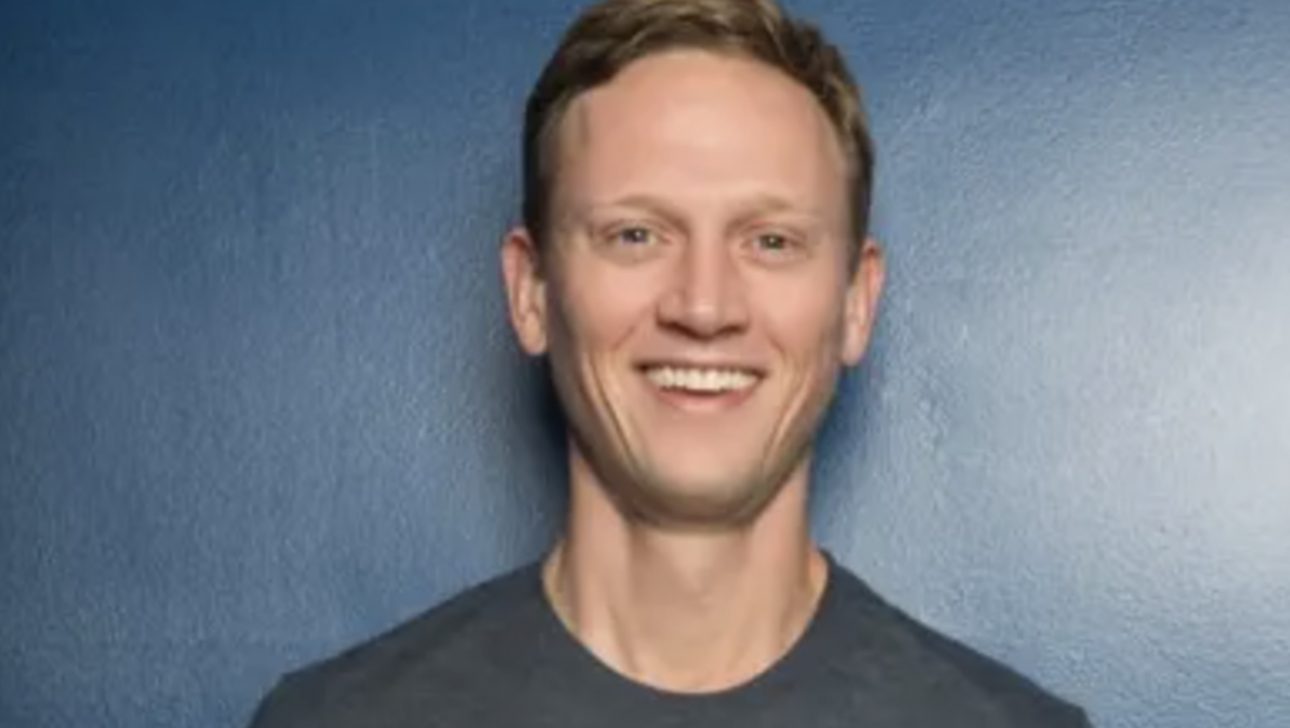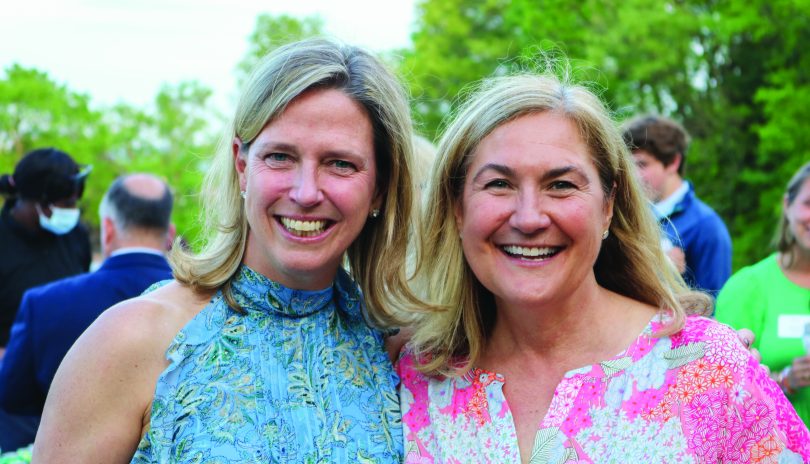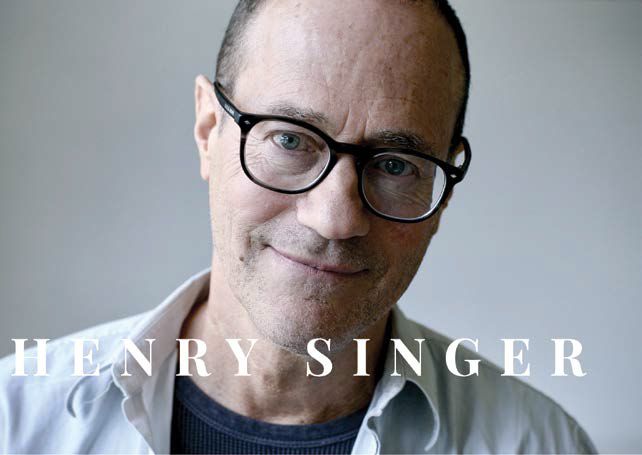By Leslie Bowen
Tommy Vietor ’92 says he is incredibly fortunate to be where he is today. At 40, he has a more impressive resume than most men his age, having served in the White House under President Obama, followed by starting a podcast, Pod Save America, and eventually forming a media company, Crooked Media, with his colleagues from that era, Jon Favreau and Jon Lovett.
He attributes his success to luck and timing, beginning with his supportive family. “My parents were incredibly caring and loving and sent me to great schools,” he said. “I recognize there was an enormous amount of privilege going to schools like DCD, Milton Academy, and Kenyon College. Those experiences and that education prepared me to take on difficult jobs.”
“I was lucky to get hired to work on Obama’s campaign in 2004, and that set the course for my life,” he said. “It was pure luck, not part of any plan.”
Tommy’s political career actually started with an internship in Senator Ted Kennedy’s office in 2002, right out of college. His cousin, Wendy Button, a speechwriter for Mayor Tom Menino, served as a role model for Tommy and connected him to someone in Kennedy’s office.
“It was an interesting year to be there,” he said. “I thought the things that Kennedy was fighting for were inspiring and set the course for pursuing politics as a career.”
Later he worked for the John Edwards campaign, and when they lost, he interviewed to work on John Kerry’s campaign. In the meantime, he was learning about a young senator from Illinois, Barack Obama. Tommy read Obama’s book, Dreams from My Father, and describes becoming “obsessed” with him, eventually turning down an offer to work for the Kerry campaign and using his connections to work for Obama instead.
After nine years working in the White House and feeling a little burned out, in 2013, Tommy decided to make a change, moving away from politics to start a screenwriting company in San Francisco. After Trump won the election in 2016, he said he felt “enormous guilt” that he hadn’t done more to prevent it.
Now with millions of people listening to his podcast, he’s added a progressive voice to the airwaves to compete with conservative media. Again, he attributes the podcast’s success to luck and timing. He remembers hearing from people from around the country who were shocked after Trump won the election and felt like the world was going crazy around them, that the country they knew no longer existed. “There was something cathartic about the show for a lot of people,” he said. “You’d realize, I’m not alone; I’m not the only one who feels this way.”
“Watching Cable TV could leave you feeling despondent, unable to make sense of things,” he said. “We decided to create a show that was a little more entertaining, more informative, and encouraged listeners to take action—to call your senator, volunteer for a campaign.”
“Citizenship is an everyday thing. It means paying attention and getting involved. If we were just punditry, we’d be lost in the crowd. By knocking on doors ourselves, we showed listeners we really cared.”
The podcast format offered several advantages to a start-up company. There was no time limit, no advertising, and no barrier to entry, Tommy explained, and it required only a small hand-held device for recording. “It’s not that hard to figure out how to edit and make it financially viable,” he said. “We worked out of Jon’s kitchen for the first six months.”
Once the podcast took off, they launched Crooked Media and spun out shows reflecting their individual interests. With his foreign affairs background from his days at the White House, where he served as national security council spokesperson, Tommy started Pod Save the World.
Describing his time in the White House addressing complicated foreign policy issues, he says it was important and fascinating but trying to understand all the strange names and places could be intimidating.
“It’s bad in a democracy when you feel like you don’t need to or aren’t smart enough to be informed about something,” he said. “When I’d get a question from a reporter, I’d find some smart person to answer their questions, mute myself and listen in. Working in the White House was grad school I got paid to do. There was so much learning I did there. I wanted to bring that incredible privilege to others.”
With Pod Save the World, he spends hours reading and engaging on a topic before he does an episode. “The thing I’ve loved over these past very bleak four years and found super interesting,” he said, “is learning about the global network of activists that exists, like Alexei Navalny, the opposition leader jailed in Russia. It gives you context and perspective to better understand our own problems.”
“There’s a global solidarity movement happening right now, with examples like the women marching in Argentina against draconian anti-abortion laws or the protests in Belarus against the presidential elections. The problems are all related to a creeping nationalism that’s taking ugly racist forms. I’m interested in understanding those connections, meeting those activists, and bringing those stories forward.”
In the post-Trump era, Tommy said he’s rethinking what changes the company will make on the political side of things. “We want to help the Biden administration achieve what they set out to do and offer friendly pressure when they don’t. It’s also important for people to understand the big issues before Congress and the states and get to know the candidates.”
On the media side of things, they’ll keep doing what they’ve been doing, including some series shows they’ve recently launched. “We’re very worried about the spread of misinformation on Facebook and YouTube,” he said. “We’re going to be thinking about ways to combat that with better content.”
Los Angeles is a long way from Dedham House of Pizza and steak and cheese subs at D’Angelo’s, and he’s glad to be far away from freezing-cold cars at carpool. Yet, he says he remembers DCD as “a kind, welcoming place with smart, thoughtful teachers who put a lot of time and effort into the students. They’re teaching you math but also coaching you, so it’s a real relationship.”
“DCD did a great job teaching you work ethics, forcing you to buckle down. You don’t realize how lucky you are to have art and shop and do pottery and take music classes. It’s an incredible privilege.”
“Who you are in eighth grade is not who you are in college. I can’t remember who I was then,” Tommy said. “When I talk to kids now, I tell them there’s lots of time to figure out the thing you’re passionate about. It’s okay to try lots of things. Academics are key, and you have to work hard, but you’ll find real meaning in understanding something deeply and take pride in it. Even if it’s not something you end up doing for a living, a lot of good things can come from the process.”







